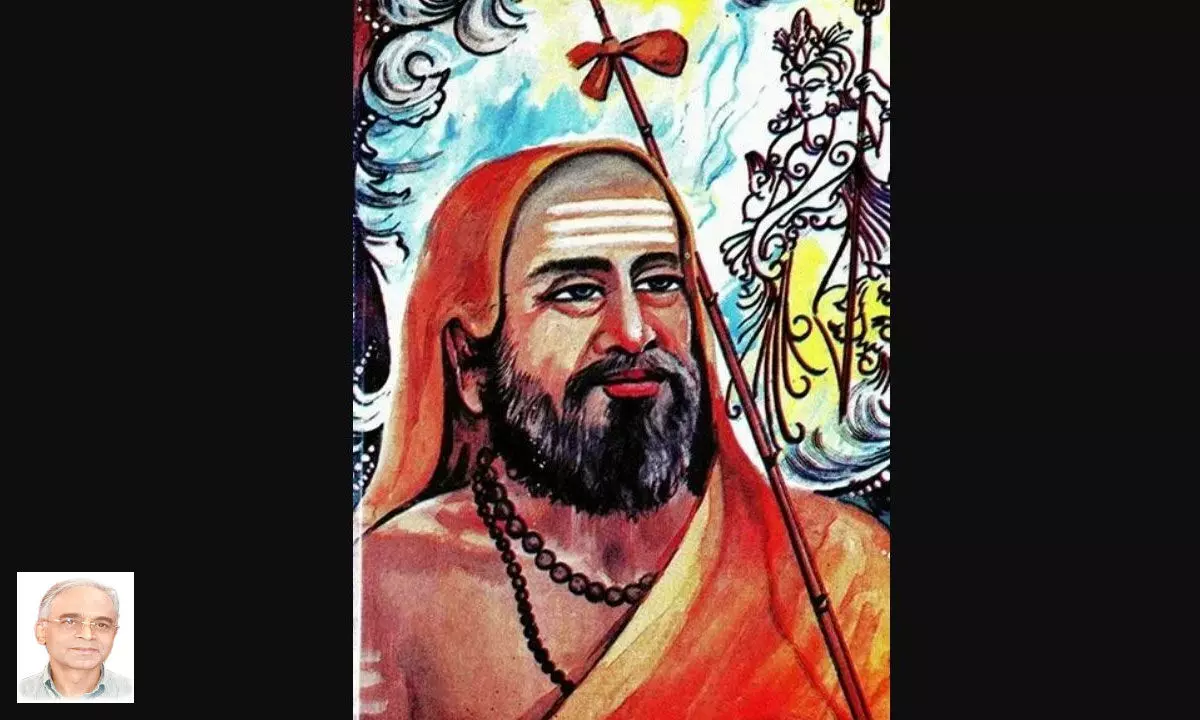Social Consciousness: Is anxiety our own making?

Vidyaranya says that a seeker must analyse this framework’s human problems, frustrations, and anxieties. He must slowly go beyond human creation. He may use the same human creation, such as the structure of a teacher and student, such as the scriptures, and try to transcend man’s creation. The seeker must discard expectation, apeksha. The Gita wants the seeker to be an anapeksha (Ch 12-16), which means one without expectations
Yuval Noah Harari, the well-known social philosopher, popularised the terms’ God’s creation’ and ‘man’s creation’. These terms are from a Vedanta text, Panchadasi, by sage Vidyaranya, who termed them Iswara-Srishti and Jiva-Srishti. In chapter four of his text, Vidyaranya gives a practical way to analyse worldly anxieties and develop dispassion, which is necessary for God-realisation. What applies to a seeker applies to anyone who wishes to analyse anxiety.
God’s creation is clear to us – the bounteous nature with huge oceans, mountains, rivers, forests, seasons, and a variety of wildlife. Human beings are a part of it. All living beings have the instinct to create comfortable living conditions for themselves, but man excelled them all. He created a great network of social structure, social bonds, family bonds, duties, and rights. He created political structures – communism, democracy etc., and a variety of religions. All these divide people and create friction, wars, and rivalry. Man created several instruments of pleasure and attached a value or prestige to each. He is happy when he gets them and unhappy if he fails in the race.
All objects of God’s creation are meant for the enjoyment of all living beings, but man monopolised them and made them all his objects of pleasure. While doing so, he created a value system which gives him happiness and frustration. For instance, God created land, but man created the USA, China, or India and the idea of my nation’. God created man and woman, but man created a husband, a wife, a daughter, a brother, a sister, a mother, a father and so on. Man-made another creation, too – he made Christian, Muslim, Hindu, atheist, etc. God’s creation is value-neutral, but human creation is a complex value system. God created woman, but man created a miss world or a beautiful woman. In God’s creation, all beings are equal and have the right to live, but man has made them superior, inferior, black, white etc., and created patterns of interactions among them.
Why is Vedanta concerned with this? It is because God’s creation does not bind the human being, but man’s creation binds him. God’s creation is not an obstruction to self-knowledge, but man’s creation is. Some of the human creations may be needed for social order. But man, lives and fights for his family, people, nation, or religion. He is caught in the web of his creation and moving astray from the highest goal of realising the Supreme Reality. His happiness or misery is from his creation. Like Arjuna, we talk of ‘my people’ versus others at the beginning of the Mahabharata war. We are comfortable when we are with our people and not otherwise. Even with our people, we are worried if the grandchild does not play with us or if the son or daughter is busy with work. We expect them to obey us, spend time with us and grieve if we don’t get what we expect.
Vidyaranya says that a seeker must analyse this framework’s human problems, frustrations, and anxieties. He must slowly go beyond human creation. He may use the same human creation, such as the structure of a teacher and student, such as the scriptures, and try to transcend man’s creation. The seeker must discard expectation, apeksha. The Gita wants the seeker to be an anapeksha (Ch 12-16), which means one without expectations. If I cultivate that trait, I will not be unhappy if my wife or some friend does not speak to me or if I do not have a fancy gadget. I must cultivate upeksha, disinterestedness. This is not cynicism but a result of an analysis of the nature of things. The objects of the external world do not disappear but exist without causing any disharmony in my mind. A calm mind alone can dwell on the content of the scriptures, practice what is told in it and have inner progress towards realisation. For a non-seeker, too, this practice controls anxiety.
(Writer is former DGP, Andhra Pradesh)














